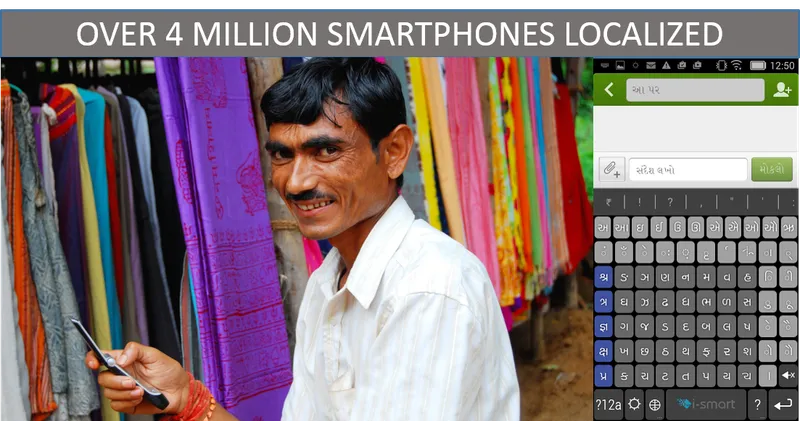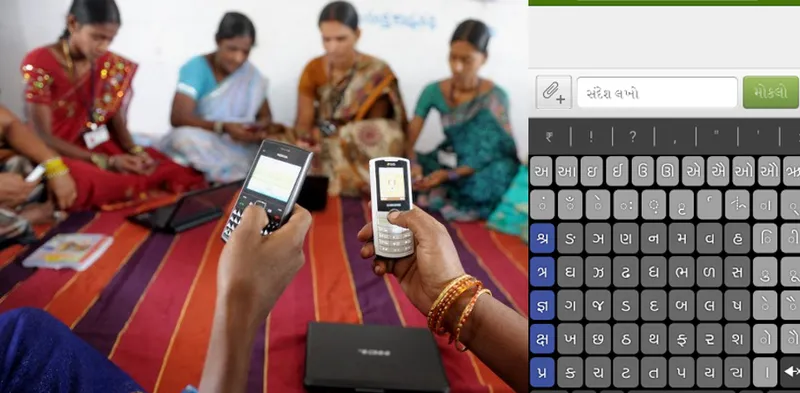Localisation is the language of success
This article is sponsored by Process 9.
Raju, a native Tamil speaker, hails from a small town near Chennai. He works in Surat, Gujarat, but loves to stay in touch with his family and friends via WhatsApp and Facebook. A non-English speaker, he recently bought an INTEX smartphone that comes integrated with a MOX keypad, which allows text entry in 21 Indian languages. MOX Keypad is one of the many tools developed by Process Nine Technologies, a Delhi-based localization service provider.

Vidushi Kapoor, Director of Process Nine Technologies, says that language diversity creates vast business opportunities in a country like India. This also makes it one of the hardest markets to tackle. Globally, the language localization service provider segment is valued at $38 billion. With 950 million mobile and 400 million Internet subscribers,less than 15 per cent of whom are English literate, localisation of all communication is the only scalable business approach.
A single solution for a diverse issue
Process 9 founded in 2011, launched it mobile localization solution that empowered mobile device users to type in nine Indian languages in 2013. It features a keypad that supports different language fonts and a technological interface that integrated well with mobile devices. In two short years, more than four million devices have been equipped with this keypad that now supports text entry and translation in 22 Indian languages.
To measure the social impact such a keypad could have, Process 9 conducted a survey on its user base. While the survey indicated high levels of smartphone penetration in India, very few people were able to understand its entire functionality because of language restrictions. To make Indians truly digitally driven and smart, devices and platforms have to be made accessible in local languages.

Mobile companies have already jumped on the bandwagon with Samsung, Gionee, Lava and INTEX integrating their newer smartphones with multi-language technology. But it’s not just device manufacturers who need to adopt localisation. Internet and app-based businesses targeting Tier 2 and Tier 3 cities also need to localise their offerings. Enabling the right multilingual technology from the beginning ensures access to a larger consumer base. This has particular relevance for startups providing commonly used services such as online shopping, cab and auto bookings, grocery delivery, and housekeeping. Creating a multilingual interactive platform that accommodates all their end users will ensure success.
Take the case of Jahangir, a native Bengali language speaker who uses the keypad to translate and transliterate text, change themes and layouts, the appearance of the keyboard, and to view other languages. While his family owns five mobiles, the one that is most commonly used is the one with the localised keyboard. They spend most of their time on this device sharing jokes, greetings and news with their friends and relatives in Bengali.
He also says shopping online is easier, with one-click translation that gives highly accurate results.
Everyone in my circle wants this keypad on their mobile. It is highly accurate and yields culturally sensitive results.
Another customer, a Delhi-based Hindi user, who was part of the survey says, "I have Internet, but I am not using shopping websites currently. When asked if he would browse websites translated in Hindi, his answer was “I would start using e-commerce sites if they get localised".
With this in mind, the team at Process 9 has always been very particular about providing contextually sensitive and accurate content. They have hired language experts from Kerala, Maharashtra, Tamil Nadu, Bengal, Punjab and other states to help them create humanised rather than automated content.
Getting down to business
The next wave will involve localising e-businesses through products like MOX-Gateway and MOX Wave. The team is currently targeting Indian languages and, down the road, expects to add languages from other countries to its portfolio.
“We’re in the NLP technology space, which falls in the artificial intelligence domain – a complex technology to master. We have hired PhDs to develop this technology and have entered technical collaboration with IITs and other institutions. We are a bunch of young and old people who are in love with their native language. We have done immense work in the area and are determined to do something that has not been done before. If we succeed, people will be able to transact business, gain knowledge, consume information and avail health, education and other services in their native language. This could bridge the economic and social divide in the country” says Vidushi Kapoor.







